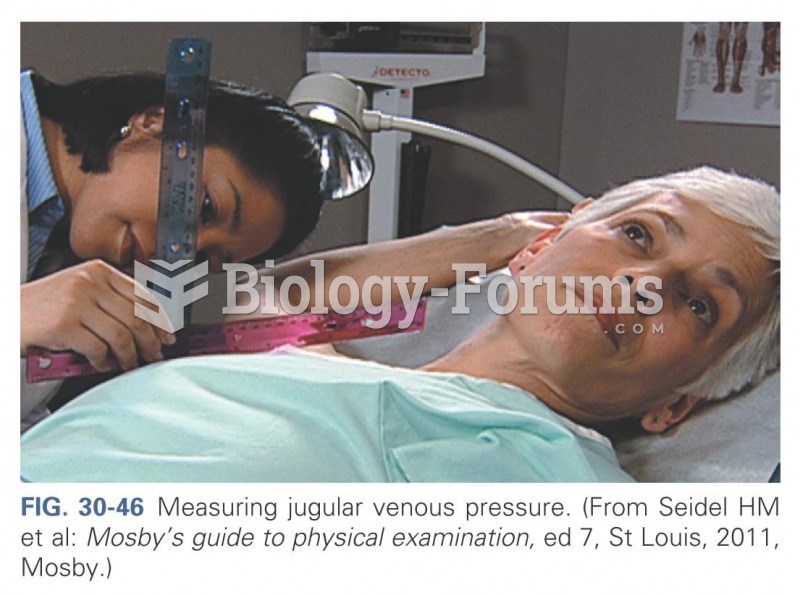|
|
|
Bacteria have flourished on the earth for over three billion years. They were the first life forms on the planet.
More than 4.4billion prescriptions were dispensed within the United States in 2016.
Vaccines prevent between 2.5 and 4 million deaths every year.
A serious new warning has been established for pregnant women against taking ACE inhibitors during pregnancy. In the study, the risk of major birth defects in children whose mothers took ACE inhibitors during the first trimester was nearly three times higher than in children whose mothers didn't take ACE inhibitors. Physicians can prescribe alternative medications for pregnant women who have symptoms of high blood pressure.
The people with the highest levels of LDL are Mexican American males and non-Hispanic black females.







